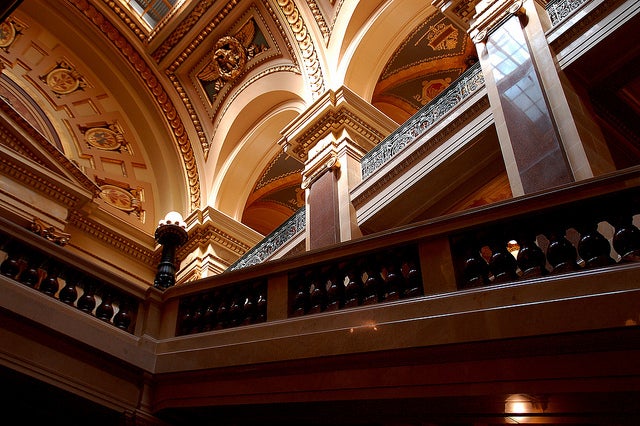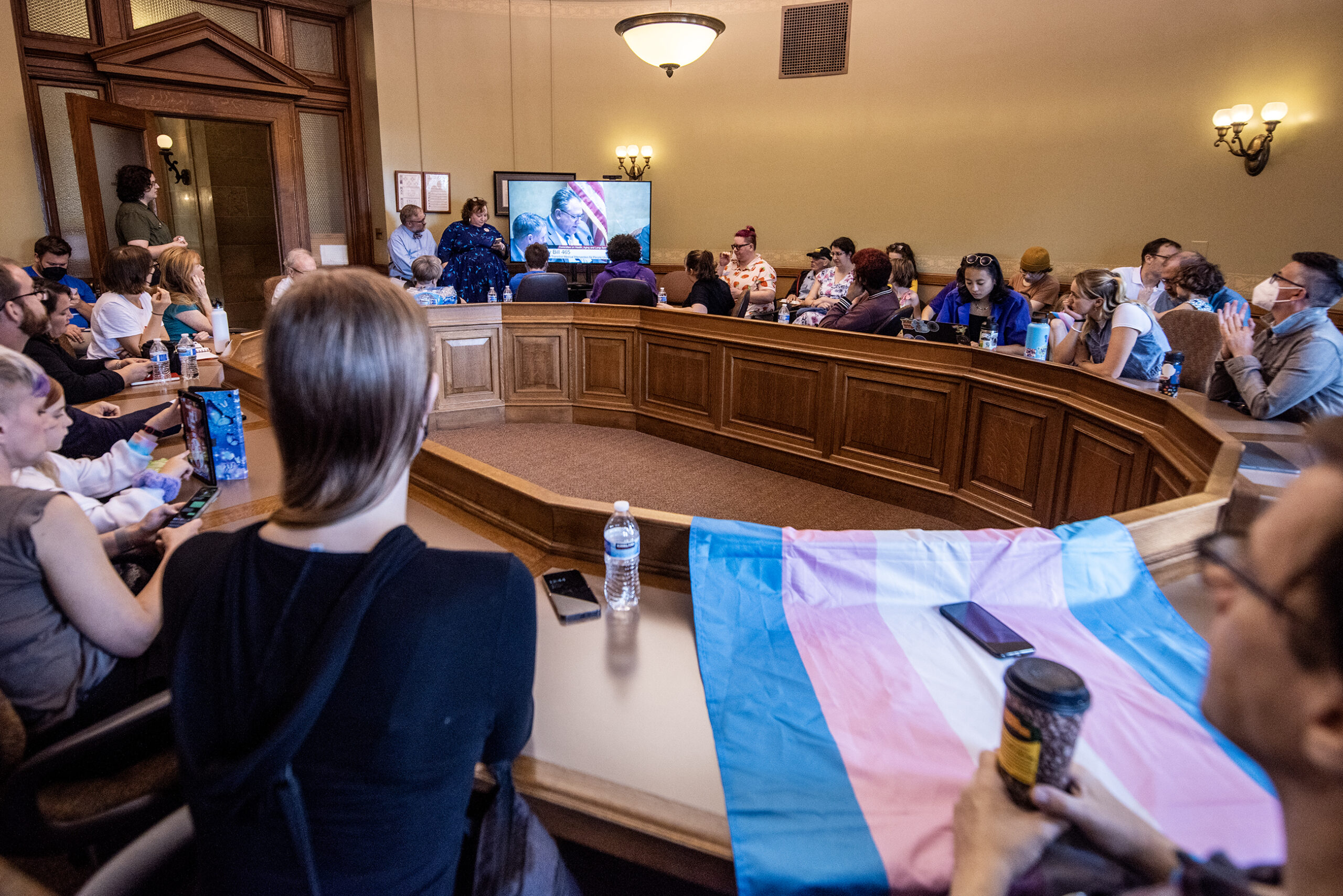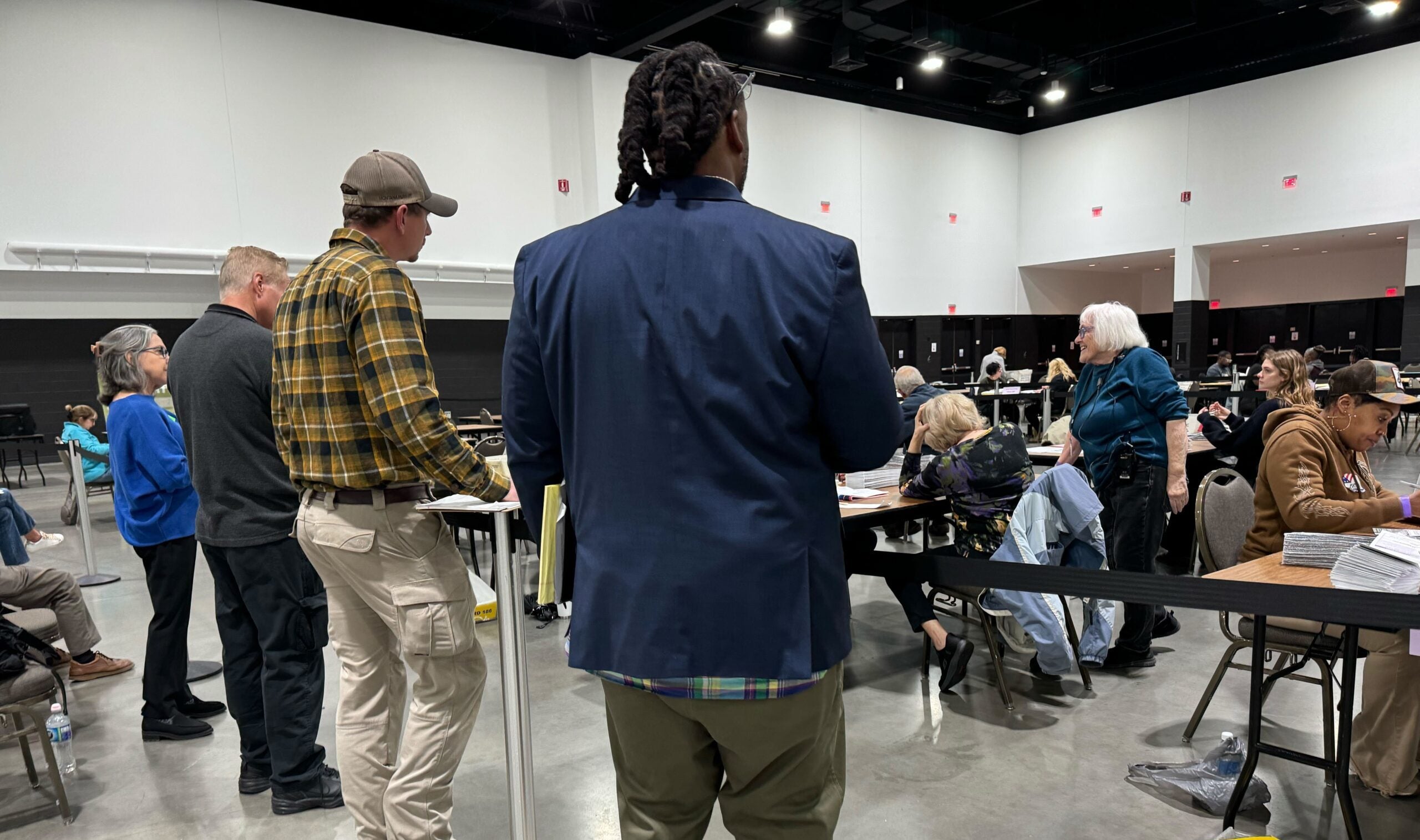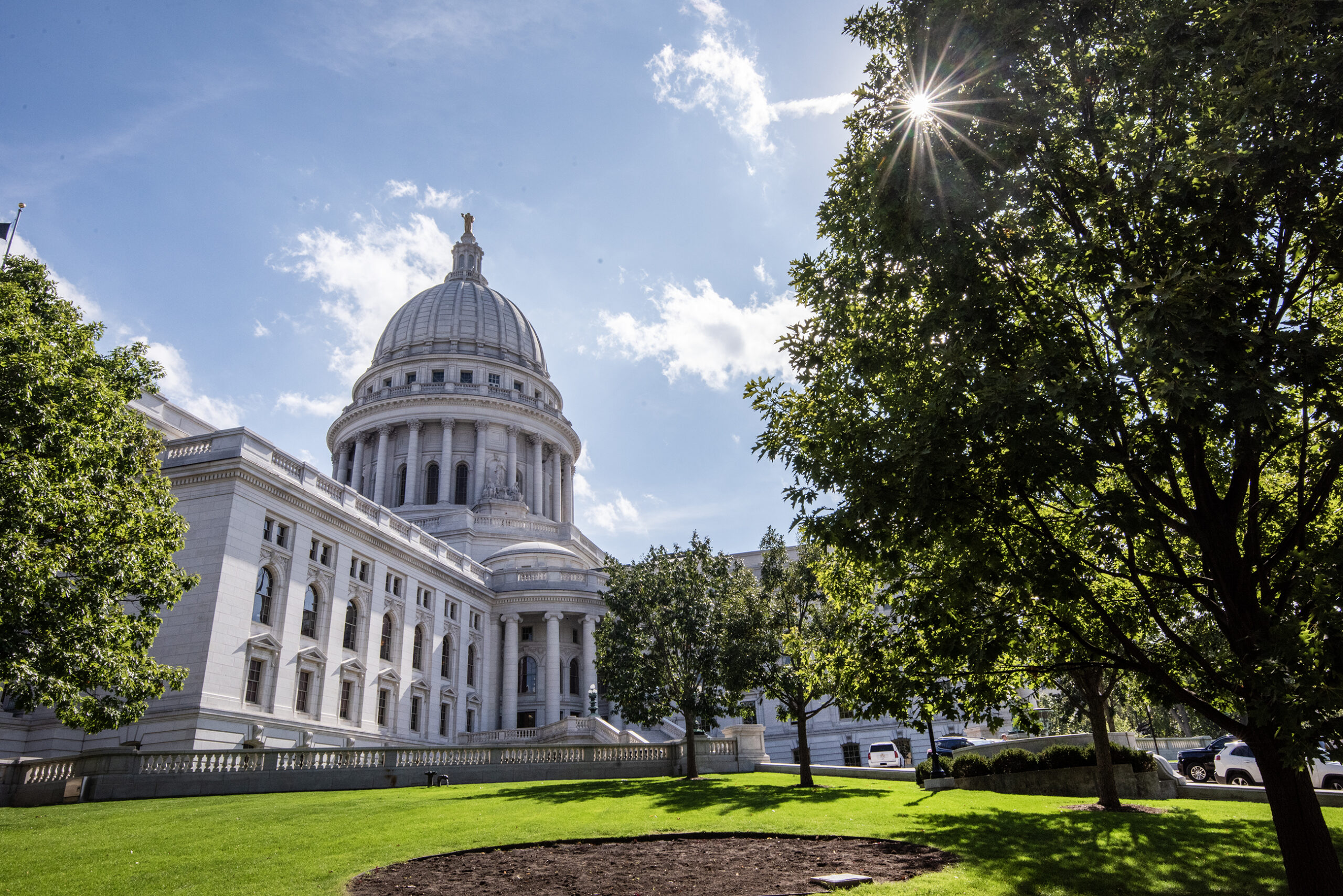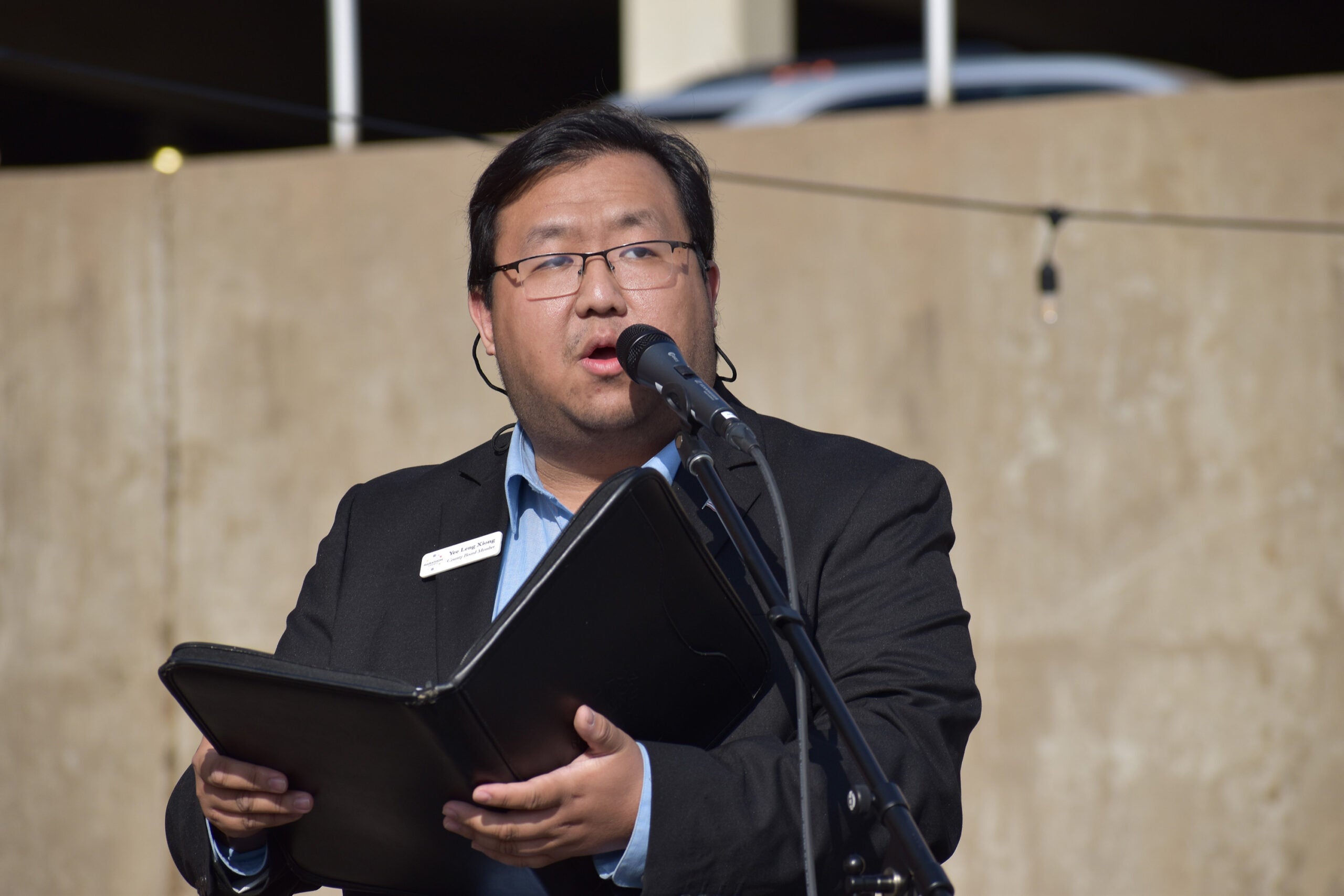Republican legislators are holding a hearing Tuesday morning on a bill to disband Wisconsin’s Government Accountability Board — an agency that marked one of the last major bipartisan compromises in state government when it was created almost a decade ago.
People had thrown around the idea of an independent ethics and elections agency in Wisconsin for years, but one day in December 2006, Democratic Gov. Jim Doyle called a state Capitol news conference saying this was going to happen.
“Under this agreement, we will create a single, strong, independent and completely nonpartisan Government Accountability Board, and provide it with the funding and independent authority to investigate and prosecute violations of the public trust,” he said.
Stay informed on the latest news
Sign up for WPR’s email newsletter.
It wasn’t just Doyle and Democrats who backed the idea. The Legislature’s top Republicans were all there to support it — including Scott Fitzgerald, then-Senate minority leader and now majority leader.
“Certainly, I think this is a great day in a bipartisan effort right off the bat,” said Fitzgerald.
Assembly Speaker Mike Huebsch, who would go on to be Gov. Scott Walker’s administration secretary, echoed the positive sentiment.
“The Government Accountability Board will have the authority to investigate criminal and civil violations of the state’s ethics and election law, and the board will have the independence and financial resources needed to conduct any investigation it authorizes,” Huebsch said.
There were a couple basic principles that made the GAB much different than the old Ethics and Elections Boards it would replace. The first was funding.
Then-Democratic state Rep. Mark Pocan, now a congressman, said at a public hearing that the board would have all the money it needed for investigations.
“You know, the problem in the past — and actually it’s a joke — the Ethics Board, currently, if they want to investigate us, they have to come and ask us for money,” Pocan said. “Well, that’s completely ridiculous, and that’s taken care of.”
That funding would give the GAB the teeth that critics said the old Ethics Board lacked.
All of this was happening after a legislative caucus scandal that saw leaders from both parties sent to jail. It was also happening just after the 2006 governor’s race, when Republicans were upset because partisans on the old Elections Board issued a ruling that went against them. Then-Republican Rep. Mark Gundrum, now an appeals court judge, said putting judges in charge of election decisions would “take away the gripe factor.”
“We wanted to make sure this was a professional board, above reproach,” said Gundrum.
The Legislature passed the bill to create the GAB on a near-unanimous vote. The bill up for a public hearing Tuesday would unravel it.
Assembly Speaker Robin Vos, who himself voted to create the GAB, said that in practice, nobody can be nonpartisan. Republicans also want to get rid of the funding that was so important in 2007, saying it gave the board too much power.
The new Ethics and Elections Commissions that would replace the GAB would consist of partisan appointees, with an equal number from both party.
Daniel Tokaji, a Ohio State University election law professor, said it would mirror the Federal Election Commission, or FEC.
“People call the FEC the ‘Failure to Enforce Commission’ for a very good reason,” Tokaji said. “Because when it comes to anything significant, the FEC simply doesn’t enforce the law, and it’s pretty obvious that that’s exactly what the dominant party in the Wisconsin state Legislature is trying to accomplish.”
Republicans said they’re merely fixing a well-intentioned experiment that went bad. Tokaji said they’re dismantling a bipartisan compromise that should be a national model for ethics and elections.
Wisconsin Public Radio, © Copyright 2025, Board of Regents of the University of Wisconsin System and Wisconsin Educational Communications Board.
